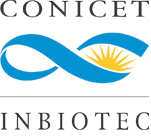Mission
The mission of INBIOTEC is to generate basic knowledge, technological developments and transfers, and human resource training to address issues related to the agricultural, environmental, and bioenergy sectors, with a focus on the study of native biodiversity for the preservation and enhancement of the region's natural resources. Bioprospection studies are fundamental to the research lines promoted at INBIOTEC, which have unique and distinctive characteristics compared to other institutes and centers in the country. To fulfill its mission, the following objectives have been proposed:
- Support and conduct research projects on topics related to the agricultural sector, marine resources, energy sector, health, and environmental sustainability, with potential for applied development.
- Implement an intensive postgraduate human resource training program in biological and chemical sciences, with an emphasis on functional and molecular biology, biodiversity, and applied microbiology, also contributing to undergraduate education.
- Promote and conduct courses, workshops, forums, networks, and scientific events for dissemination, discussion, and project generation.
- Support actions and create spaces to facilitate the return of Argentine researchers residing abroad and/or relocation within the national territory.
- Promote connections with the productive sector.
- Consolidate links with organizations, institutions, laboratories, or working groups across the country and abroad (with a special emphasis on ConoSur integration) through agreements and participation in joint projects.
- Transfer technology.
- Conduct a continuous scientific outreach program, with a focus on the community of the Municipality of General Pueyrredón.
Research Themes in Development
The research lines at INBIOTEC fall within six main thematic areas (Fig. 1):
A) Agricultural Microbiology
B) Environmental Biotechnology
C) Plant Biotechnology
D) Algal Biotechnology
E) Applied Entomology
F) Applied Chemistry

It is noteworthy that the groups within INBIOTEC are interrelated and complement their thematic areas.
Organization and Management
The governing bodies of INBIOTEC are the Directorate and the Board of Directors (CD). The CD consists of four members from the CIC. In July 2015, elections were held to renew half of the research members of the CD, and, for the first time, representatives from the CPA and fellows were elected. By RD 2034/15, the formation of the INBIOTEC CD was authorized with researchers PhD. Corina Berón, Marina Battaglia, María Victoria Martín, Giselle Martínez-Noël, Alejandro Mechaly and Leonardo Curatti, as well as Adjunct Professional PhD. Marisol Fassolari and fellow Lic. Agustina De Marco.
The internal organization of INBIOTEC has been structured since its creation into five Advisory Committees (as they functioned in CEBB-MdP): the Academic Affairs Committee (CAA), Internal Affairs Committee (CAI), Administration and Finance Committee (CAF), Extension and Transfer Committee (CAE), and Safety and Hygiene Committee (CSH). The CD occasionally forms ad-hoc Committees for specific issues (e.g., calls for PMI, PME projects). Additionally, there are four service and support units that report to the Directorate and have designated responsible individuals. These units are: the Documentation Center (library and periodicals, FIBA), Microorganism Banks (FIBA), Administration, and the Maintenance area.
